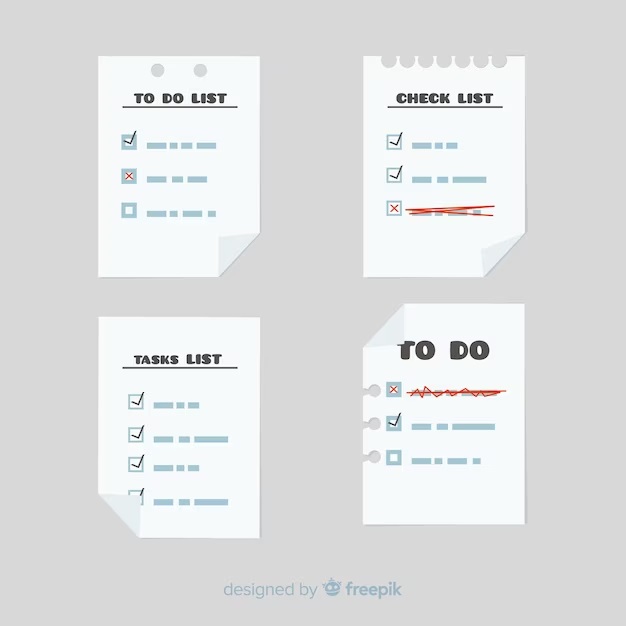Mental Preparation: Techniques for Overcoming Pre-Date Jitters
Mental Preparation: Techniques for Overcoming Pre-Date Jitters
Going on a date can be a nerve-wracking experience for many, especially those who may not have been on one in a while. Pre-date jitters are a common phenomenon, but they can be overcome with some mental preparation techniques. One such technique is visualization, which involves picturing yourself having a successful and enjoyable date. This allows you to mentally rehearse the experience and feel more confident going in. Other techniques include positive affirmations, deep breathing exercises, and mindfulness meditation, all of which help to calm the mind and reduce anxiety.
Another important aspect of mental preparation for a successful date is focusing on your mindset. It's essential to approach the date with a positive attitude and an open mind. Instead of worrying about potential outcomes and anxieties, focus on being present in the moment and enjoying the experience. This mindset shift can help reduce stress and anxiety and makes the date a more enjoyable experience for both you and your partner.
Finally, preparing for a date mentally also includes taking care of one's physical well-being. Ensuring that you are well-rested, well-groomed, and dressed appropriately can help boost confidence and reduce anxiety. It's also essential to engage in positive self-talk and avoid negative thought patterns. By taking care of yourself both mentally and physically, you'll be better equipped to handle pre-date jitters and make the most of your time with your partner.
Accept Nervousness as Normal and Healthy
In society, there is often the idea that being nervous is a negative quality. However, nervousness can be a natural and healthy response to certain situations. When we are nervous, our body releases adrenaline, which can help us stay alert and focused. This can be incredibly helpful in situations where we need to be on our toes, such as during a job interview or a presentation.
It is important to remember that nervousness is a normal part of life. Everyone gets nervous at one point or another, and it doesn't necessarily mean that something is wrong with you. In fact, accepting nervousness can be a step towards building confidence. By recognizing that nervousness is natural, we can start to relax and approach situations with a more positive attitude, which can ultimately make us more successful in our endeavors.
Of course, there are times when nervousness can be overwhelming and interfere with your daily life. In these cases, it is important to seek help and support from a professional. However, for the most part, nervousness is simply a response to new or challenging situations. By embracing nervousness as a normal and healthy part of life, we can approach these situations with more confidence and optimism. Remember, being nervous is not a weakness, but rather a natural part of being human.
Remember Why You're Out on a Date
When you're out on a date, it's important to remember why you're there. You're there to get know someone who could potentially be a romantic partner, not to check off a box on your social calendar. Take the time to genuinely connect with your date and learn about their interests, values, and dreams. This will not only help you determine if you have a real connection, but will also show your date that you're interested in getting to know them.
Another important thing to remember on a date is to be present in the moment. Put your phone away and engage in meaningful conversation with your date. Pay attention to their body language and tone of voice to truly understand what they're saying. Don't rush through the date or constantly be thinking about what you're going to say next. Take your time and enjoy the company of your date.
Lastly, remember to be yourself on a date. Don't try to be someone you're not or pretend to like things just because you think your date will like them. Be honest about who you are and what you're looking for in a relationship. This will not only help you find a compatible partner, but it will also set the foundation for a relationship based on trust and authenticity. Remember, the goal of a date is to find someone who likes you for you, not someone who likes the person you're pretending to be.
Focus on Having Fun and Not on the Outcome
It is common for people to focus on the outcome rather than the process when it comes to activities or tasks. Whether this is due to cultural pressure to succeed or personal goals and ambitions, it can lead to a sense of disappointment or frustration if the desired outcome is not achieved. Instead, it can be more fulfilling and enjoyable to focus on the process itself and have fun along the way. This can mean appreciating the journey and the experiences gained, rather than just the end result.
Focusing on having fun can also improve motivation and engagement in the process. When we enjoy what we are doing, we are more likely to stay committed and put in effort, which can lead to better outcomes in the long run. Furthermore, having fun can enhance creativity and problem-solving skills, as it allows for a more relaxed and open-minded approach to tasks. This is particularly important in areas such as the arts, where creativity and innovation are key components of success.
Lastly, focusing on having fun can also improve mental health and well-being. Engaging in enjoyable activities can serve as a form of stress relief and relaxation, which can reduce symptoms of anxiety and depression. It can also increase feelings of happiness and fulfillment, as it provides a sense of purpose and meaning to one’s life. Thus, prioritizing fun and enjoyment in life can have both short-term and long-term benefits for one’s emotional and psychological well-being.
Do Something Relaxing on the Day of the Date
Sometimes, a date can be stressful, especially if it's a first date or an important anniversary. If you're feeling anxious or overwhelmed, it's important to take some time for yourself and do something relaxing before or after the date. It could be something as simple as taking a hot bath, reading a book, or practicing yoga. By taking care of your own needs, you'll be in a better mindset and more likely to enjoy your time with your partner.
If you're looking for ideas of things to do that aren't too strenuous or demanding, consider indulging in a spa treatment, visiting a garden or park, or going for a scenic drive. The goal is to find something that helps you unwind and de-stress, so you can approach the date with a clear and open mind. It's also a good idea to avoid any activities that might cause additional stress, such as going to a crowded, noisy bar or restaurant, or participating in a high-energy sporting event.
Remember, a date is supposed to be an enjoyable experience, and it's okay to take the time you need to prepare yourself mentally and emotionally. By doing something relaxing on the day of the date, you'll be in a better position to connect with your partner and create a positive, memorable experience. Take care of yourself first, and the rest will fall into place.
Talk to Yourself Positively
Talking to yourself positively can greatly impact your mental and emotional wellbeing. By replacing negative self-talk with kind and encouraging words, you can improve your self-esteem and reduce anxiety and stress levels. Positive self-talk can also help you achieve your goals by increasing your motivation and confidence. So next time you find yourself thinking negatively, try to rephrase your thoughts in a more positive and uplifting manner.
One way to cultivate positive self-talk is to practice self-affirmations. Self-affirmations are positive statements that reaffirm your good qualities and values. They can help you counteract negative self-talk and build a better relationship with yourself. To practice self-affirmations, start by identifying your strengths and achievements, and then create statements that reflect them. Repeat these affirmations to yourself daily, and try to internalize their positive message.
Another approach to positive self-talk is to focus on gratitude. Gratitude is the practice of appreciating and recognizing the good things in your life. By focusing on the positives, you can shift your mindset from one of lack and negativity to abundance and positivity. Try to make a habit of listing three things you are grateful for each day, and take the time to reflect on why they are meaningful to you. This practice can help you cultivate a more positive attitude towards yourself and your life.
Envision Success Rather than Failure
Envisioning success instead of failure can make a huge difference in achieving your goals. Visualizing your desired outcome can help you stay motivated and focused on what you want to achieve. It can also help you overcome obstacles and setbacks along the way. Instead of dwelling on potential failures and negative outcomes, focus on the positive possibilities and what steps you can take to reach them. Create a mental image of yourself successfully completing your goals and let that drive your actions and decisions.
When we visualize success, we also start to believe that achieving our goals is possible. This positive mindset can give us the confidence we need to take risks and pursue our dreams. It can also help us attract opportunities that align with our goals and values. With a strong belief in ourselves and our abilities, we can approach challenges with an optimistic attitude and a willingness to learn from our mistakes.
Envisioning success doesn't mean ignoring potential obstacles or underestimating the hard work required to achieve our goals. It simply means focusing on the positive possibilities instead of the negative ones. By envisioning success, we can create a roadmap for ourselves that includes achievable steps, measurable progress, and a clear vision of our desired outcome. With this mindset, we can turn our dreams into reality and achieve success in whatever we set out to do.
Treat Yourself with Self-Compassion
Self-compassion is a concept that involves treating ourselves with kindness, warmth, and understanding instead of being judgmental and self-critical. It involves being aware of our weaknesses and limitations and accepting them without feeling shame or guilt. It also means recognizing our humanity and acknowledging that we are not perfect, but that we are doing our best given our circumstances.
Self-compassion is a crucial aspect of mental health and well-being since it helps us manage difficult emotions such as anxiety, depression, and stress. When we practice self-compassion, we are less likely to engage in negative self-talk or self-destructive behaviors like overeating or substance abuse. Instead, we are more likely to take care of ourselves by engaging in healthy habits such as exercise, meditation, and socializing.
In conclusion, treating ourselves with self-compassion is an essential part of living a fulfilling life. By cultivating self-compassion, we can learn to love and accept ourselves unconditionally, even with our flaws and imperfections. It takes practice and effort but embracing self-compassion can create significant positive changes in our mental and emotional health, leading to a renewed sense of happiness and well-being.
Listen to Calming Music
Listening to calming music can have a positive impact on our mental and physical health. It can help to reduce stress and anxiety, lower blood pressure, and even improve sleep quality. In fact, studies have shown that listening to music can trigger the release of feel-good chemicals in the brain, such as dopamine and endorphins, which can lead to a sense of relaxation and happiness.
Calming music can take many forms, from classical music and instrumental pieces to ambient sounds and nature sounds. Each person may find different types of music more calming than others, so it's important to experiment and find what works best for you. Some people may find that slow, melodic music is most calming, while others may prefer the sound of crashing waves or rainforest sounds.
Incorporating calming music into your daily routine can be a simple yet effective way to improve your overall wellbeing. Whether it's listening to music while you work, before bed, or during your daily commute, taking a few moments each day to listen to calming music can help to boost your mood and reduce stress levels. So why not give it a try today and see how music can help you to relax and unwind?
Get Moving
Physical activity is known to have a positive impact on our overall health and wellbeing. Not only does it help improve our physical fitness, but it also plays a crucial role in reducing the risk of chronic diseases like diabetes, obesity, and heart disease. Moreover, engaging in regular physical activity helps reduce stress and anxiety levels, improves mood, and boosts cognitive function. Thus, it's essential to get moving and incorporate physical activity in our daily routines to lead a healthier and happier life.
Exercise doesn't have to be complicated, time-consuming, or expensive. Simple activities like walking, jogging, cycling, or even dancing, can help improve our health and fitness. Ideally, adults should aim for at least 150 minutes of moderate-intensity aerobic activity, such as brisk walking or cycling, per week. Additionally, strength training exercises that work all major muscle groups, like lifting weights, at least twice a week can help prevent age-related muscle loss and maintain bone health.
It's crucial to listen to our bodies and start slowly with any new physical activity. Gradually increasing the time and intensity of the exercise can help prevent injuries and ensure long-term compliance. Moreover, finding a physical activity that one enjoys can increase the chances of sticking to it. Exercise doesn't have to be a chore; it can be a fun way to socialize, de-stress, and improve our overall quality of life. So, get moving today and start reaping the numerous health benefits that physical activity has to offer!
Stay Connected with Your Body
Staying connected with your body is essential for optimal health and well-being. It means being in tune with your body's signals, sensations, and needs, and responding accordingly. Whether you're trying to manage a chronic condition, prevent illness, or simply feel better in your daily life, staying connected with your body is one of the most important things you can do.
One way to stay connected with your body is to practice mindfulness. This means paying attention to the present moment and observing your thoughts, emotions, and physical sensations without judgment. Meditation, yoga, deep breathing, and other relaxation techniques can all help you cultivate mindfulness and improve your body awareness. You can also practice mindfulness throughout your day by simply taking a few moments to check in with your body and notice any areas of tension, stress, or discomfort.
Another way to stay connected with your body is to prioritize self-care. This means taking care of yourself physically, emotionally, and mentally. Eating a healthy diet, getting enough sleep, staying active, and managing stress are all important components of self-care. Additionally, taking time to do things you enjoy, spend time with loved ones, and engage in hobbies or activities that bring you joy can also help you feel more connected with your body and improve your overall well-being.
Find an Accountability Buddy
Finding an accountability buddy can be a great way to achieve your goals. An accountability buddy is someone who can hold you accountable for your actions and help you stay on track. By having someone else to answer to, you are more likely to stay motivated and committed to your goals. An accountability buddy can help you set goals, track your progress, and provide support when you need it. It can be a friend, family member or even someone you meet online.
When looking for an accountability buddy, it's important to find someone who has similar goals and values as you. This will help ensure that you are on the same page and working towards the same things. It's also important to find someone who you trust and can depend on. You want to find someone who will be honest with you and push you to be your best self. It can be helpful to set up regular meetings or check-ins to stay accountable and give each other feedback.
Accountability buddies can be especially helpful when it comes to fitness or weight loss goals. It can be easy to fall off track or make excuses when you're working towards these goals on your own. Having someone to go to the gym with or check in with can be a great way to stay motivated and committed. It's also helpful to have someone to celebrate your successes with and hold you accountable when you slip up. Finding an accountability buddy can be a great way to form a support system and achieve your goals.
Be in the Present Moment
Being in the present moment means being fully engaged with what is happening right now, without dwelling on the past or worrying about the future. It requires a conscious effort to focus on the present and to let go of distractions or thoughts that pull us away from the current moment. When we are in the present moment, we are more aware of our surroundings, our thoughts, and our emotions, which can help us make better decisions and feel more grounded in our lives.
There are many benefits to being in the present moment. When we are fully engaged in what is happening right now, we are more likely to experience joy, gratitude, and contentment. We may also be more creative, compassionate, and productive. Being present also allows us to connect more deeply with others, as we are fully engaged in their company and not distracted by our own thoughts or concerns.
However, being present is not always easy. Our minds are often busy with thoughts about the past or worries about the future. We may also be distracted by technology or other external factors. It takes practice to cultivate the ability to be present, but it is worth the effort. By training ourselves to be in the present moment, we can live more fully and enjoy each moment as it comes.
Remind Yourself of Your Strengths
It's easy to get caught up in negative self-talk and overlook our own strengths. So, it's important to take a step back and actively remind ourselves of the things we are good at. Perhaps you are a great listener, a fantastic cook, or a talented writer. Whatever the case may be, reflecting on and celebrating our strengths can have a positive impact on our self-esteem and overall well-being.
One way to remind yourself of your strengths is to keep a running list. Make a note of things you accomplish or do well, as well as positive feedback you receive from others. It can be helpful to revisit this list from time to time, especially when you are feeling down or struggling with self-doubt. You may be surprised by how long your list grows over time, and it can serve as a powerful source of motivation to keep pursuing your goals.
Another helpful way to remind yourself of your strengths is to focus on past successes. Think about times in your life when you overcame a challenge or accomplished something significant. Remembering these accomplishments can help you recognize your own abilities and remind yourself that you are capable of achieving great things. It can also help you approach future challenges with more confidence and a positive attitude.



